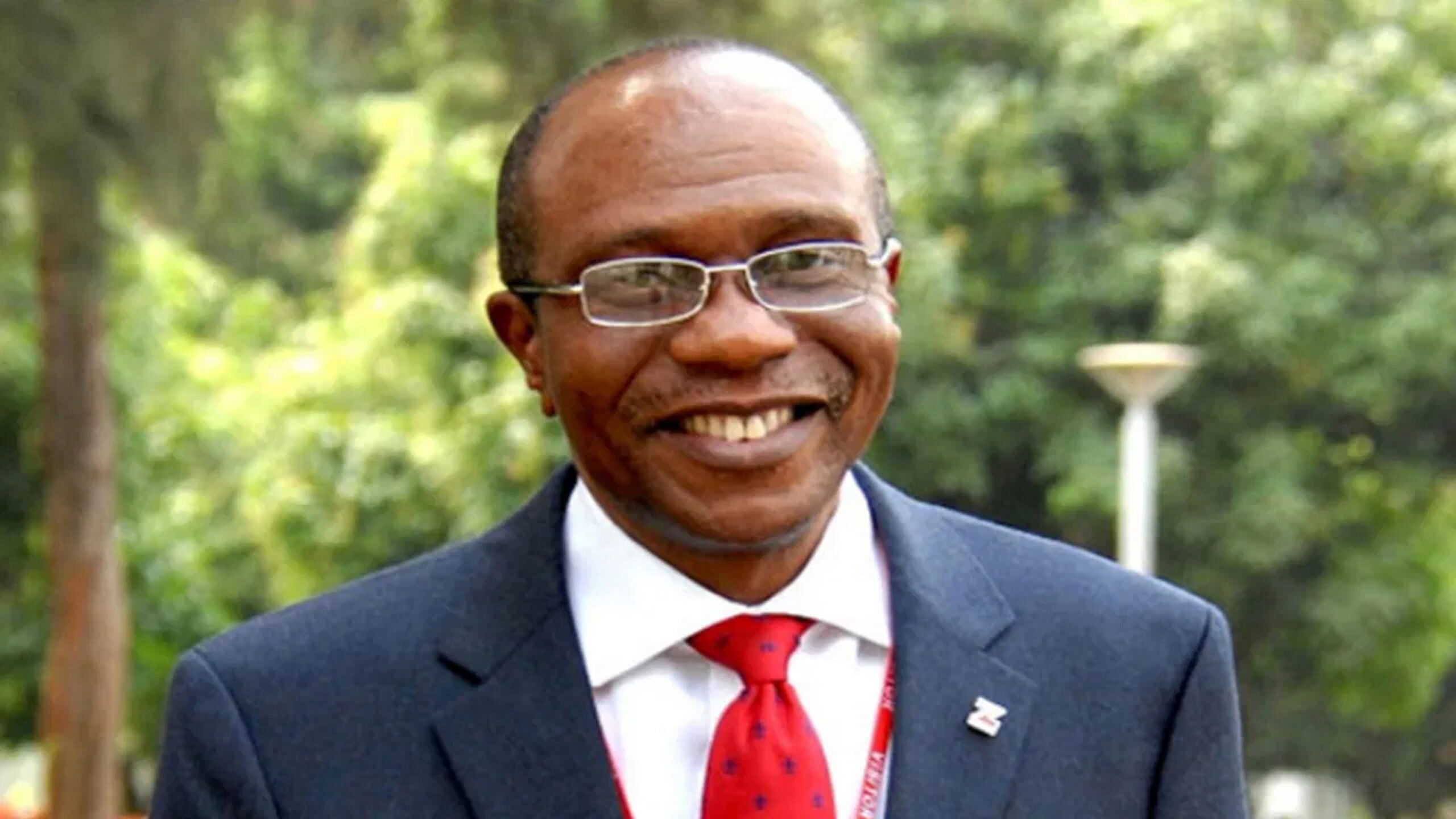N120bn CBN fund: Consumers want meters, improved power supply
The consumers complained about poor electricity supply services amidst rising cost of electricity especially as the Nigerian Electricity Regulatory

Governor, CBN, Mr. Godwin Emefiele
Power consumers and power sector experts have tasked the 11 power Distribution Companies (DisCos) on accelerating meter installations for the over eight million customers while improving power supply by enhancing their networks.
This is coming on the backdrop of a N120 billion intervention fund from the Central Bank of Nigeria (CBN) from which the apex bank recently released N3.6bn to the DisCos for metering.
- AKTH conducts first Cochlear implant in Kano
- Sports Ministry makes u-turn on Athletics federation dissolution
The consumers complained about poor electricity supply services amidst rising cost of electricity especially as the Nigerian Electricity Regulatory Commission (NERC) is reviewing the Multi Year Tariff Order (MYTO) 2020 with a likely tariff increase by July 2021.
According to statistics from NERC, over four million registered consumers do not have meters in their properties but were placed on the estimated billing system, which has been described as ‘exploitative, crazy billing’ means.
Daily Trust also reports that this is not the first time CBN is intervening in the power sector. In 2015, the bank rolled out the N213bn Nigerian Electricity Market Stabilisation Fund (NEMSF) to save the privatised power sector from collapse and to settle debts sustained before the power privatisation of 2013. It also intervened in 2017 with the N702bn Payment Assurance Facility (PAF) with a further extension totalling N1.695bn to support payment for gas by the Generation Companies (GenCos).
Last year, CBN announced N140bn support for the Solar Power Naija programme to expand access to power especially in off-grid areas as part of the COVID-19 economic stimulation package.
The latest N120bn CBN intervention fund for the DisCos was also confirmed by the Senior Special Adviser to the President on Infrastructure, Ahmad Zakari, recently when he said: “There is N120 billion capital expenditure (CAPEX) fund from the Central Bank for DisCos to improve infrastructure for the tariff classes similar to the ongoing metering programme.”
This is coming at a time a World Bank survey ranked Nigeria as the worst country globally without access to electricity, overtaking the Democratic Republic of Congo.
According to statistics from CBN, the N3.6bn released so far was part of the DisCos’ Capital Expenditure (CAPEX) pegged to improve on their infrastructure. It is to enhance meter installation efforts by the DisCos to procure more prepaid meters that would stabilise an efficient energy billing system.
NERC in Order No. NERC/246/2021 released on March 4, 2021, stated that of the 8.3m registered DisCos’ customers, only 3.7m (44.6 per cent) have meters while 4.6m (about 55.4 per cent) do not. Even at that, a significant number of the installed meters are faulty.
While the GenCos, through the Association of Power Generating Companies (APGC) said they have expanded their capacity and can generate 7,600 megawatts (MW), the Transmission Company of Nigeria (TCN) boasts of 8,100MW capacity but the DisCos are still within 5,000MW power distribution.
However, spokesman of the Association of Nigerian Electricity Distributors (ANED), Sunday Oduntan, faulted this claim. He said DisCos can supply up to 6,000MW if the other parties can deliver that on the grid.
To further improve on the DisCos’ capacity, some experts who spoke to Daily Trust called on the operators to judiciously utilise the N120bn CBN fund and not waste them on extravagant items as discovered in the past.
Ibadan DisCo had used its NEMSF to divest in another subsidiary, which resulted in a penalty from NERC. Other DisCos were found to have purchased luxurious vehicles rather than solving core electricity supply constraints.
“This move by CBN will significantly improve the electricity supply situation but that is only if the DisCos utilise the fund well. I suggest CBN should impose penalties for default,” said Engr. Emmanuel Okoh, a power sector analyst in Benue.
To bring an end to estimated billing, President of the Nigeria Consumer Protection Network (NCPN), Kunle Kola Olubiyo, said the CBN intervention on fast-tracking metering was a laudable move.
“Right now, if transformers and poles break down, especially during this rainy season, the consumers are at the mercy of DisCos due to lack of structured funds for infrastructure.
“In reality and sadly, the end result of the recent increase in electricity tariff has been a decline in load dispatch, low power utilization and it has been a case of blame game among the GenCos, TCN and DisCos,” he said.
On his part, the National President, Association for Public Policy Analysis (APPA), Princewill Okorie, said it would improve energy accountability which is what consumers have always called for.
PwC’s Associate Director, Energy, Utilities and Resources, Habeeb Jaiyeola, said the CBN intervention was needed to strengthen the DisCos’ revenue collection and put an end to the estimated billing regime.
NERC Chairman, Engr. Sanusi Garba, during a recent interactive session between the Senate Committee on Power, NERC officials and representatives of the DisCos, in Abuja, said only 13 per cent of the 1 million national mass metering programme has been reached as of March 2021.
He said N403,000 meters have been delivered to the DisCos but only 127,000 (13 per cent) have been installed.
